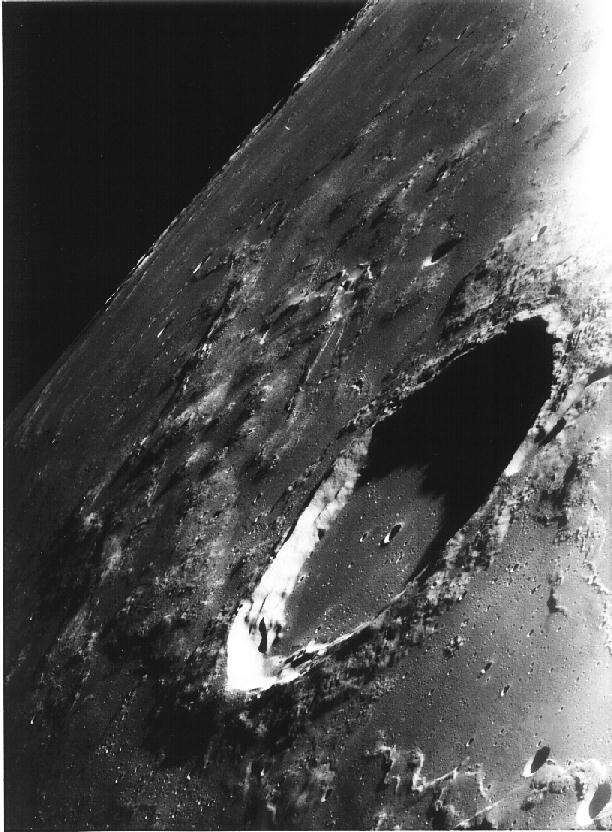A small stoat is taking a drink at the edge of a stream. A leopard approaches, with a glint in it’s eye.
Leopard: I always find that writing something down is a way of instantly forgetting it. It is all taken care of and you don’t need to worry about forgetting it later. Don’t you think?
Stoat: Please don’t eat me.
Leopard: You don’t need to worry, I’m never very hungry when I’m thinking..
Some small talk.
Stoat: So you’re saying that in Hollywood love is a fade to black, then cigarettes?
Leopard: At least it used to be, back when Hollywood respected it’s audience enough to hide things from them. Now it’s all copulation and flesh, teasing and gratification. Funnily enough, the fade to black is more generous to our perversions and fantasies than flesh caught on film ever is. The bride stripped bare is no longer a bride, but an animal, the groom a fauve too. Our minds have little work to do in such an encounter – all of the work is being done for us, in our place. So the fade to black used to be much more risqué in a way.. by letting our own fantasies bloom. Now it is no longer possible to engage in my own personal fantasy – to apply my desires to the situation in front of me – instead a predetermined piece of choreography is dictated to me, preaching generosity and democracy, while practicing authoritarian fascism.
Personally I believe the old adage that love is blind. It is like standing back to back with someone you trust. You are unable to see them, but when the back of your hand touches the back of theirs you know that you are both there because you want to be. When facing away from each other, at any point one or the other of you could walk away and leave the other completely exposed. This cannot happen when you are looking someone in the eye – face to face – body to body, flesh on screen. It is that unspoken agreement the fade to black that stands for something. Maybe I am old-fashioned, but I get more kicks from Alfred Hitchcock than from Takashi Miike. Let me elucidate a little..
I think that the pain and beauty of being alive lies in our inconsolable loneliness; our universal singularity, and in our innate drive to find the miracle that will reverse this condition. Supposedly the answer to this loneliness has existed in the solidarity of workers, in the solidarity of belief, in the solidarity of religion and class. But solidarity is not happiness, it is temporary euphoria. It is the feeling of marching side by side towards a common goal. But solidarity cannot last forever. March too long and fatigue sets in, euphoria turns to ideology. March farther still and ideology turns into doctrine. And if the march stretches out longer still doctrine turns into hegemony.
So solidarity is an impermanent phenomena relying on constant propulsion, an increasing or at least steady velocity. As soon as it slows the essence of solidarity is lost, when euphoria turns into ideology it requires more and more fuel to reach that joy of initial and unmediated euphoria. It is this way with capitalism, with drugs, and with relationships too. We enter into a relationship with the hope for communion, but what we find is solidarity. We enter into a relationship with the hope of finding a self propelling something that exists in a natural state – just because we will it so. But we find that to keep the engine running there must be a constant feeding of fuel into the fire. What we expect to be ease - our own private utopia – we see is actually work, just as much the dysfunction as the thing we hope to take solace from.
So in love unless your backs are turned to one another, unless you are facing opposite directions and remaining perfectly still, you will always be walking slowly away from each other even though you travel in the same direction.
Stoat: I think I know what you mean. Love can be hard to find sometimes, so sometimes we need to look a bit harder. When we are looking harder, we take notice of things that we may otherwise miss; a fallen tree balanced gingerly across two rocks, a light yellow sheet caught on a wire. When we are not possessed of a single love but are looking, we take notice of these things and somehow they make sense and we realise that actually we are already in love.
Some smalltalk.
Saturday, March 22, 2008
Subscribe to:
Post Comments (Atom)

No comments:
Post a Comment